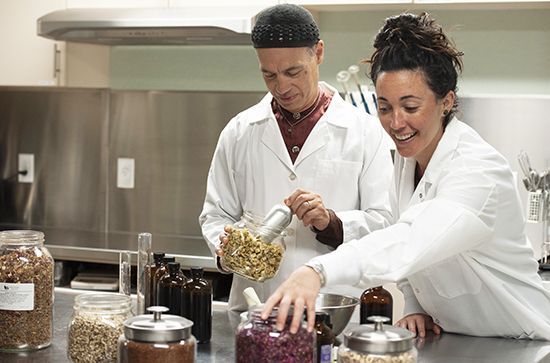The Power of Optimism in Your Healing Journey

Many years ago I was working with a unique breast cancer patient whose disease was caught very early on. The cancer was located in one small area of the breast and was confirmed by biopsy. This patient was adamant about doing only natural therapies and she wanted to avoid any and all modern chemotherapeutics and treatments. I supported her in her decision and we began the journey together. As she went through therapy she began to display a significant level of anxiety and fear around the cancer spreading. As time went on her fears became a reality as her markers increased and a single axillary lymph node showed up suspicious in imaging.
At this point we chose to start some more intensive therapies which included cryoablation and a short course of chemotherapy. This seemed to compound her anxiety as we watched her markers continue to increase and a follow-up scan showed concern for remaining disease. It was at this time I decided to speak to her about how her fears and anxieties may have been playing a role in her results. I put her in contact with a counselor who helped her shift her thinking around the cancer, and also put her back in contact with her religious roots. Three weeks later as we met again to discuss her therapies she was a different person. She was convinced she would be healing up and that the cancer would never return. As time went on this was confirmed by imaging and cancer markers. She recently hit her 5-year mark of no evidence of disease.

Optimism is not just a state of mind; it’s a remarkable force that can shape our health and healing in ways we’re only beginning to understand. At its core, optimism reflects a belief that positive outcomes are possible, even in the face of adversity. This perspective isn’t about ignoring the challenges of illness or the reality of medical treatment – it’s about facing these challenges with hope, determination, and resilience.
Research has increasingly highlighted the profound impact of an optimistic mindset on physical health, emotional well-being, and medical treatment outcomes. From managing chronic diseases to recovering faster after surgery, optimism plays a central role in how our bodies and minds respond to health challenges. But what is it about optimism that makes such a difference, and how can patients cultivate this outlook during difficult times?
Optimism and the Body: Why Positivity Matters
Scientific studies reveal that optimism doesn’t just feel good – it also translates into measurable health benefits. A landmark study published in JAMA Network Open found that individuals with higher levels of optimism had a 35% lower risk of major cardiovascular events, including heart attacks and strokes1. Optimism is associated with lower levels of stress hormones like cortisol, better immune function, and improved cardiovascular health 2,3

Stress is one of the biggest barriers to recovery, as chronic stress weakens the immune system, disrupts sleep, and exacerbates existing health conditions. Optimists, however, tend to approach stress differently. They view setbacks as temporary and solvable, which reduces the negative impact stress has on their bodies. This mindset creates a protective buffer, allowing the body to heal more efficiently.4
Another mechanism involves health behaviors. People who are optimistic are more likely to take proactive steps to improve their health, such as adhering to treatment plans, eating well, and exercising. A study in Health Psychology showed that optimistic patients recovering from surgery were more likely to follow their physical therapy regimens and reported faster improvements in mobility compared to pessimistic patients.5
The Mind-Body Connection
Optimism also exerts a powerful influence on mental health, which, in turn, supports physical recovery. Mental health conditions such as anxiety and depression are common during periods of illness and can undermine the body’s ability to heal. Optimism helps counter these emotional challenges by fostering resilience, reducing feelings of helplessness, and encouraging positive coping strategies.6

This mind-body connection is especially evident in chronic illness management. For example, patients with diabetes who maintain an optimistic outlook are better able to manage their blood sugar levels, a result attributed to their willingness to stick to dietary guidelines, medication schedules, and exercise routines.7 Similarly, cancer patients with positive attitudes report fewer symptoms of pain and fatigue, which are partly mediated by reduced stress and better psychological well-being.8
How Optimism Shapes Medical Outcomes
One of the most fascinating aspects of optimism is its ability to amplify the effectiveness of medical treatments. Research from The New England Journal of Medicine demonstrates that patients who believe in the success of their treatment are more likely to experience positive outcomes, even in clinical trials involving placebos.9 This isn’t simply about “wishful thinking”; the brain's belief in recovery can trigger physiological changes, such as the release of endorphins and other healing hormones.
Optimism also strengthens the doctor-patient relationship, which is a critical component of effective care. Patients who approach their interactions with trust and positivity are more likely to communicate openly with their healthcare providers, leading to better-informed decisions and more personalized treatments.10

Building Optimism: Small Steps, Big Impact
While optimism comes naturally to some, it’s a skill that anyone can cultivate. Even during tough times, small changes in perspective can lead to meaningful improvements in health and well-being.
One of the simplest strategies is practicing gratitude. Keeping a daily journal of things you’re thankful for, no matter how small, can help shift your focus from challenges to positives. Research published in Psychological Science shows that gratitude increases resilience and boosts overall happiness, both of which support an optimistic outlook.11
Another effective approach is reframing negative thoughts. When faced with uncertainty or setbacks, ask yourself: “What can I learn from this?” or “What’s one thing I can do to improve this situation?” These small shifts in thinking can transform obstacles into opportunities for growth.12
Five Practical Strategies for Patients
At the end of the day, optimism is about mindset and action. Here are five practical ways you can use optimism to support your health:
- Focus on Progress, Not Perfection
Celebrate even the smallest victories. Whether it’s a slight improvement in your symptoms or successfully completing a treatment session, acknowledging progress keeps you motivated and hopeful. - Surround Yourself with Positivity
Spend time with people who uplift you and avoid negativity when possible. Support groups, friends, and family can provide the encouragement you need to stay optimistic. - Practice Gratitude
Write down three things each day that you’re thankful for. This simple habit can help shift your focus from what’s wrong to what’s going well. - Set Realistic Goals
Break your recovery into manageable steps. Having achievable goals helps you stay focused and prevents feelings of being overwhelmed. - Engage in Relaxation Techniques
Practices like mindfulness meditation, yoga, or deep breathing can reduce stress and create mental space for positivity to thrive.

Conclusion
As I have seen in the experience of multiple patients, including the profound example of my highly anxious breast cancer patient, a journey through illness or recovery is as much about mindset as it is about medicine. By choosing to cultivate optimism, you’re not just hoping for a brighter future – you’re actively creating one. Optimism empowers you to take control of your health, make positive choices, and build the resilience needed to face any challenge.
The evidence is clear: believing in better outcomes leads to better outcomes. Start today with small, practical steps, and watch as the power of optimism transforms your health and your life.
Join the Mederi Center community by signing up for our email list! We send several emails a month with product promotions for patients, practical tips for healthy living, blogs written by our practitioners, information about events, and other news. You can unsubscribe at any time.
References
- Rozanski, A., et al. Optimism and Cardiovascular Health. JAMA Network Open, 2019.
- Cohen, S., et al. Stress and Immunity in Disease. Annual Review of Psychology, 2007.
- Scheier, M.F., et al. Optimism and Physical Well-Being. Psychological Bulletin, 2001.
- Carver, C.S., & Scheier, M.F. Optimism. Current Directions in Psychological Science, 2014.
- Seligman, M.E.P. Flourish. A Visionary New Understanding of Happiness and Well-Being. 2012.
- Fredrickson, B.L. The Role of Positive Emotions in Positive Psychology. American Psychologist, 2001.
- Lench, H.C., et al. Optimistic Beliefs and Health Behaviors. Health Psychology Review, 2011.
- Rabin, C., & Pinto, B.M. Cancer-Related Optimism. Psycho-Oncology, 2006.
- Benedetti, F. Placebo and the Brain: From Pain to Healing. The New England Journal of Medicine, 2014.
- Roter, D.L., & Hall, J.A. Doctors Talking with Patients. Journal of General Internal Medicine, 2006.
- Emmons, R.A., & McCullough, M.E. Counting Blessings. Journal of Personality and Social Psychology, 2003.
- Beck, A.T. Cognitive Therapy of Depression. 1979.


